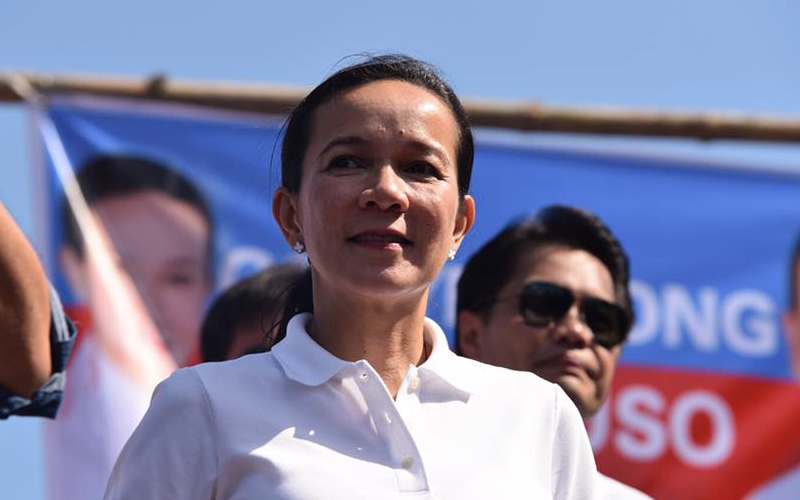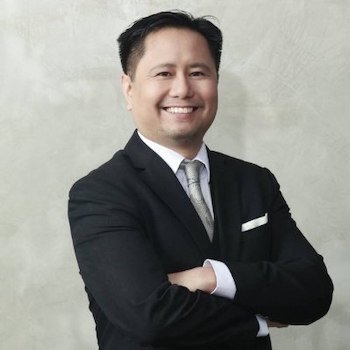
Why the Philippines Should Vote for Poe
Six years ago the Philippines faced a critical choice in its presidential election, and its voters ended up making the right choice. The election of President Aquino in 2010 was the smartest thing the Filipino people could have done – for their country and for themselves. The country was falling further and further behind other Asian countries in terms of its growth rate, basic economic indicators, and perceived desirability as a place to do business. As a result of Aquino’s policies, and many of the changes he has made to the way the Philippines functions, today it is a better place on many levels – as a place to do business and as a place to live. Next month, voters face a similar choice – whether to maintain momentum and continue the path Aquino has set for the country, or change course.
The current front-runner for the presidency is Rodrigo Duterte, a tough-talking, foul-mouthed mayor whom many analysts portray as Asia’s version of Donald Trump. Duterte is praised by some as someone with a record of getting things done – as a mayor. He is also known for his approval of (and admitted involvement in) extra-judicial killings as a means of enforcing the law in Davao since the 1990’s — during and since his second term as mayor. No doubt, a significant reason why Duterte has such appeal with voters is that the Philippine National Police reported a 46% increase in crime nationwide in the first half of 2015. Crime is a problem, clearly, but do Filipinos really want a future in which vigilante justice rules and armed militias are roaming their streets with the approval of the government? Can that really be the answer?
Leading in the vice presidential polls is Senator “Bongbong” Marcos, son of former president Ferdinand Marcos. The Marcos clan has long been revered in their home province of Ilocos Norte, and the Marcos name remains golden in local and regional politics. Voters from the province continue to deliver members of the Marcos family to a variety of elected offices. But the idea of having the son of the late dictator a heartbeat away from the presidency is unsettling for many outside the province, three decades after his parents were forcefully removed from office. Do Filipinos really want to return the son of a man who ruled with an iron fist for decades and looted the Philippine nation to Malacanang Palace? How is doing so likely to be beneficial for the country in the long-term?
While recent surveys show Duterte overtaking Senator Grace Poe, these surveys do not capture Duterte’s latest fallout after publicly joking about a 1989 rape and murder of an Australian missionary, whom Duterte described as “so beautiful” that “the mayor should have been first, what a waste.”
After trading barbs with the U.S. and Australian ambassadors to the Philippines following their strong condemnations of his remarks, Duterte said he would “cut ties” with their countries once he becomes president. Seriously? Do the Filipino people want to elect a man to the highest office in the land who jokes about rape and threatens to cuts ties with two of its most important allies as a result of their ambassadors objecting to his outrageous and inflammatory statements?
Since the last of the televised debates among presidential candidates, Duterte has offered no coherent foreign policy, no policy for the domestic economy and job generation, and no form of behavior even closely resembling statesmanship. Indeed, he has a lot in common with Donald Trump, who is also riding a wave of discontent in the U.S. to lead in the Republican polls. Other than a singular conviction to end criminality in the Philippines in “3 to 6 months” by “killing all criminals,” Duterte is the least distinguished candidate in terms of original policy making, and appears to be perfectly content “copying” the platforms of his competitors.
What is driving Filipino voters to prefer Duterte and Marcos over the plethora of other choices in this election cycle? Apart from being in the habit of voting for family names they know well, part of the answer may be disillusionment with Aquino’s daang matuwid (straight path) governance. In a prior article, we noted that while President Aquino has been successful in moving the economy forward, inclusive growth and unemployment will remain the top two issues for his successor. Duterte has addressed neither, but he does argue (wrongly) that his solution to criminality will be the solution for everything else. Like Donald Trump, Duterte has succeeded in turning a deep sense of dissatisfaction over daang matuwid into a platform for sustained demagoguery. And, like Trump, Duterte has given no meaningful explanation for how he intends to accomplish his stated objectives, while being perfectly happy to prey upon voters’ worst fears.
While Aquino’s legacy includes garnering at least eight sovereign credit rating upgrades (with the Philippines having attained ‘investment grade’ status), and despite Aquino enjoying a high degree of public trust, the gains of the Aquino administration have not been transposable to anyone else. Voters appear to think that Aquino’s anointed successor, former interior secretary and investment banker Mar Roxas, is too disconnected from the supermajority of Filipinos who are poor (although this has not stopped voters from electing a slew of other candidates in the past who came from wealthy families). Surely, never before have Filipinos been faced with so many electoral options and viable national-level candidates, yet, contrary to what logic and common sense would appear to dictate, voter preferences cutting across all classes are indicating an unshakeable nostalgia for ‘quick fix’ solutions under a strong man – despite the dangers they must know that implies.
This is no more evident than in the rise in popularity of Senator Marcos as frontrunner for the vice presidency. Analysts will agree – although many will outwardly deny it – that Marcos Jr. has been able to slowly revise the true historical narrative of martial law during his father’s rule, recasting his father’s rule as one that, had it not been for the 1986 EDSA revolution, would have catapulted the Philippines into greater heights — despite clear evidence to the contrary. That is simply preposterous. Yet, truly surprisingly, voter demographics show that the biggest voter segment who favor Marcos Jr. actually belong to the 35 to 54 age group, and not the millennials who are routinely accused of not knowing anything about what the Philippines was like under martial law. Thirty years after the fact, can the EDSA revolution have meant nothing?
The Philippines and its people clearly deserve better. Rather than ascribe to abrupt change, the Philippines and its leaders need a balanced mix of continuity and reform. Senator Poe’s platforms are anchored on inclusive growth (Walaang Maiiwan, or ‘let no one be left behind’) and Gubyernong May Puso (compassionate governance), and focus on the development objectives of health and education. Instead of relying on ‘bullets’ and ‘murderous violence,’ Poe proposes to end criminality by ending poverty. She has incorporated many of Aquino’s programs, such as the conditional cash transfer program as a vehicle for poverty alleviation, but has proposed to take this a step further by adopting measures aimed at enhancing policies and programs in place without taking too radical a departure from them. Given the progress that has been made under President Aquino, a ‘radical’ departure is not what is needed.
Aside from wanting to transpose the gains in the economy into tangible gains in poverty alleviation and inequality (which remains a necessity), Aquino’s successor must be able to translate economic leadership into a more meaningful role in regional politics. This is in large part because of China’s brinkmanship in the South China Sea, known to Filipinos as the ‘West Philippine Sea.’ Under President Aquino, the Philippines has taken forceful action to oppose China’s antics, being the first country to oppose China at a UN-sanctioned international tribunal, and by re-engaging the U.S. in joining forces to ramp up their military presence in the region.
Since the Philippines has taken the lead in hauling China into an international court, other countries that have also experienced violations of their territorial sovereignty from China — such as Indonesia, Vietnam, and recently, Malaysia — have contemplated taking similar legal action and look to the Philippines as an example in that area. Poe’s view on that portion of the South China Sea adjacent to the Philippines can be summed up in one brief statement: “The West Philippine Sea is ours.”
Poe believes that the Philippines must be able to balance economic diplomacy with territorial and maritime concerns, the latter being bilaterally non-negotiable. Between Poe and Duterte, Poe is clearly the better statesperson. Despite being relatively new to politics, Poe has taken on the strongest and most progressive position in Philippine foreign policy of any presidential candidate. In addition, Poe is keen on revising the country’s national security policy and formulating a more detailed national security strategy within her first 100 days of office, along with establishing credible defense and armed forces modernization through a combination of pragmatic diplomacy, constructive engagement, and managing relations with its allies under existing mutual defense pacts.
By contrast, Duterte has displayed an appalling lack of knowledge or interest in international affairs. Governments and business communities around the world are concerned about a Duterte presidency, as they are about a possible Trump presidency, seeing either as a huge step in the wrong direction. The difference is, the Philippines faced its cross-road 6 years ago, and bolted boldly into the future, with excellent results. The U.S. faces that cross-road today. Both countries have a much better option staring them in the face; Both have female candidates who have a strong command of the issues, are clear about what they plan to do, and have their peoples’ interests at heart.
The upcoming elections in both the Philippines and the U.S. should not be about demagoguery, manipulating voters’ worst fears, and spewing incendiary rhetoric. Nor should they be about perpetuating lowest common denominators and the fanciful notion that there are quick fixes to big problems. These elections are about maintaining momentum, implementing policies that ooze with common sense, and have a long-term orientation. If you want that, vote for Poe!


